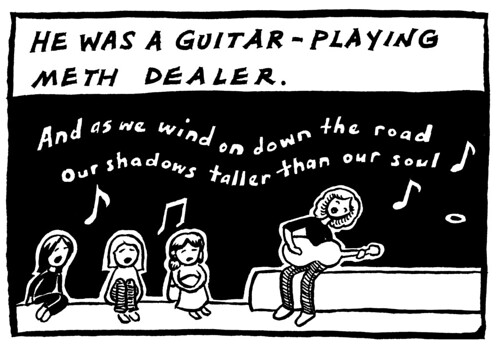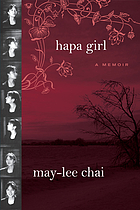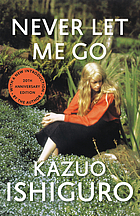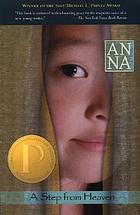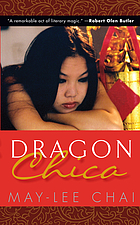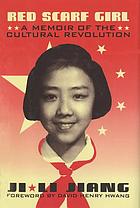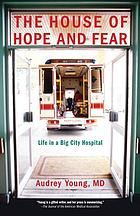Tagged with Asian-American
Legend
Hello, Hunger Games readalike! I can't believe the female co-protagonist wasn't originally imagined as a girl. Ugh. But at least she is now, she, being 15-year-old aristocratic orphan military prodigy June Isparis, who is charged with hunting down her brother's accused killer, an underground hero, also 15, who goes by the name of Day.
author gender:
medium:
author demographic:
Kiss & Tell: a Romantic Resume, Ages 0-22
MariNaomi’s graphic memoir tells the story of each of her romantic and sexual partners up to the age of 22. It’s 330 pages long, which may give you some idea of what kind of kid she was. And I mean “kid.” Ages 12-14 take up more than 100 pages and reference 15 boys and 1 girl, though she didn’t have intercourse until the 11th or so boy. There are also drugs. Though I am a bit of a prude, I’m not judging. I love Mari’s clean drawing style. Many of the cels are white on black, without a lot of extraneous detail. Even when they are occasionally more intricate, you don’t feel unsettled looking at them.
author gender:
medium:
recommendation:
author demographic:
Hapa Girl: a Memoir
May-lee Chai exposes the racist heartlessness of the heartland in her memoir of spending her teens in South Dakota (near the Pine Ridge reservation where someone perhaps other than Leonard Peltier shot two FBI agents a few years before the Chais moved there). She and her brother faced real danger from their fellow junior high and high school students, and several of the family’s dogs were killed on the Chai’s farm.
author gender:
medium:
recommendation:
author demographic:
Never Let Me Go
author gender:
book type:
medium:
recommendation:
author demographic:
Step from Heaven, a
America is what's supposed to be a step from heaven for the Park family, when they emigrate there from Korea. Young Ju's family makes its way to the US when she is about four, if I remember correctly. The early parts of the novel, which chronicles her life until just before she leaves for college, are impressionistic, conveying how one's memory of childhood comes in flashes, not narratives. The telling remains episodic, though of course it gets clearer as Young Ju matures. Sometimes I don't like that kind of writing, but in A Step from Heaven it's just how she tells a sometimes painful story. Even the reader needs a little literary distance from Young Ju's abusive father, and from seeing the abuse turn Young Ju's American-born brother Joon Ho into a monster, as well.
author gender:
medium:
recommendation:
author demographic:
Dragon Chica
To me one of the most important things about this book is that it's from a small press, GemmaMedia. From their about page, "Gemma features cultural memoir from around the world, Irish fiction and fine journalism, the Open Door adult literacy series and current affairs publishing with diversity at the heart of the story." Dragon Chica is a pretty great book. It's not a memoir, but it reads like one. It tells the story of a Cambodian-Chinese refugee coming of age in Nebraska. She, her mother, her older sister Sourdi, younger twin sisters and younger brother move there to help their aunt and uncle run a Chinese restaurant.
author gender:
book type:
medium:
recommendation:
author demographic:
Red Scarf Girl: a Memoir of the Cultural Revolution
I've read a fair amount of Cultural Revolution memoirs and novels. Like the others this story of Jiang's experiences in her early teens is pretty grisly: old folks humiliated and physically abused, children asked to turn against their parents, and a mob mentality ruling everything from the highest reaches of the government to the smallest minds of the neighborhood and school enforcers. The only different is that just a little bit I felt like Jiang doesn't truly get that her privilege (prior to the madness) was a bad thing. That she wasn't a star student because she was inherently good, and that the kids who ended up being red bullies hadn't previously been poor students because they were just stupid. She bemoans the negative effects of her family's wealth and history, but doesn't acknowledge that her family name and fortune had once been just as beneficial as they were now burdensome.
author gender:
medium:
author demographic:
free:
House of Hope and Fear: Life in a Big City Hospital, the
I secretly wish I was a doctor and not so secretly distrust and resent the medical profession, not to mention the health care industry. The House of Hope and Fear touches on the latter, more than the former. The author/doctor exhibits some annoyance with patients (and their families) that want to participate in developing their own treatment plans. The stories detail the cases of various emergency department patients, but the book is more about the Harborview hospital itself. Even so I didn't feel like I ever comprehended Harborview's unique funding model. It gets some public funds, but doesn't rely on them? But part of its mission is to serve the uninsured. The real problem with this book, which I neither loved nor hated, btw, is that it feels like it was written for someone's approval. Probably a few someones, since the book isn't as coherent as it could be.
Heart-and-lung transplantation was sometimes offered as life-sustaining therapy for those with end-stage pulmonary hypertension, but the selection of "appropriate" candidates for a limited number of organs could resemble the application process at elite colleges.
author gender:
medium:
author demographic:
No History, No Self #1
Johanna, one of my favorite zine publishers, hadn't made a zine since issue 4 of Sisu came out in May 2006. For some reason, although I acquired No History, No Self from StrangerDanger back in November, I didn't get around to reading it until just now. (I have a serious cataloging backlog problem, which I hope to clear up by the end of the year!) I'm a fool for letting it go so long, but at least I finally read it. Like all of Johanna's zines, NHNS has strong political content, particularly regarding race, mixed race identity, and identity politics. She has put in her time as an activist and has plenty of cred in that arena (also in feminist science-fiction and vegan communities), so what is particularly affecting to me in this new zines venture is how personal and open she is, about missing New York, trying to make friends, being depressed and contemplating therapy. She lists some great self-care suggestions for dealing with depression, the top three being sleep, cats, and tea, things I can totally get behind. That emphasis on self-care I think in this case extends to the rest of the world. NHNS is gentler than its predecessors. Johanna, who doesn't suffer fools lightly, is more inwardly focused this time around, maybe because repatriated to the UK she's missing her friends from home around whom she can actually be herself. Reading this zine I wanted to give Johanna a hug. I also want to know when issue 2 will be out.
But at the same time I'm not ready to throw labels completely out. Look at the people in the US who want government to stop keeping statistics on race. What would happen? You wouldn't be able to point out, for example, that the worst-performing schools with the least resources happened to have predominantly students of color, or that police stop people of a certain race way out of proportion to their population in the community...because you wouldn't be allowed to keep track. Ignoring race doesn't make racism go away.
I also think the focus on getting rid of labels is part of a homogenizing "colorblind" approach to race that has liberals pretending there's no cultural differences between people, which is offensive & blatantly not true or helpful.



